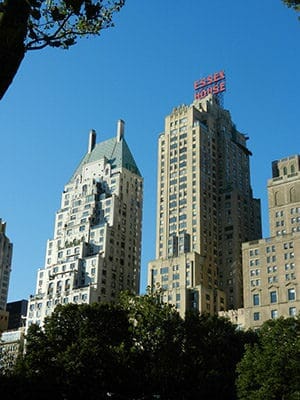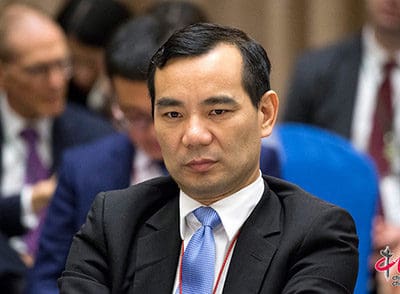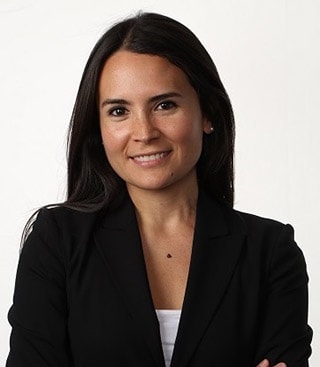
The Essex House along New York’s Central Park is the best known asset Anbang is putting on the market
Anbang Insurance Group is reportedly looking to sell off the Strategic Hotels & Resorts portfolio of 15 luxury hotels it picked up two years ago for $5.5 billion, according to the Wall Street Journal. If the company finds a buyer, the overseas sale would be Anbang’s largest since the company was seized by the Chinese government earlier this year.
Reports have been circulating for months that Anbang was looking to offload some of its overseas assets, with stories growing more frequent after Anbang’s founder Wu Xiaohui was sentenced to 18 years in prison during May. Last month, Reuters reported that the company was looking into selling off $10 billion worth of property.
Now Anbang is said to be seeking a buyer for a set of luxury properties including the JW Marriott Essex House near New York’s Central Park and Four Seasons and hotels in Silicon Valley and Jackson Hole, Wyoming, which it had purchased from Blackstone in March 2016, as it joins a number of prominent Chinese investors rushing to divest overseas real estate assets.
Anbang Bought Fast, Sells Still Faster
Anbang haste to divest its assets parallels its eagerness to acquire the set of hotel and resort properties two years ago, when it helped Blackstone to turn a quick $500 million profit on the Strategic Hotels and Resort portfolio just six months after acquiring the assets of the one-time listed trust for the equivalent of $5 billion in 2015.

Anbang may be more motivated to sell after chairman Wu Xiaohui was jailed in May
The REIT portfolio had originally included San Diego’s Hotel Del Coronado, which was later dropped from the planned sale due to national security issues, trimming the original set of 16 properties down to 15 and scaling down the price of the acquisition from the original $6.5 billion figure to the reported $5.5 billion value of the final sale.
The Strategic Hotels and Resorts acquisition was Anbang’s second large deal with Blackstone, which had previously sold the prominent Waldorf Astoria New York to the Chinese insurance company for $1.95 billion. That property is reportedly not for sale and is currently closed until 2020 as some of the rooms are converted into condos.
Slower Hotel Market Works Against a Quick Sale
While Blackstone found a ready buyer for the set of luxury hospitality assets, Anbang might not be so lucky. Sales of US luxury hotels fell to $5.2 billion in 2017, down more than 75 percent from their 2015 volume of $22 billion, according to JLL figures cited in the Journal account. The price per room for US luxury hotel sales also declined more than $100,000 over the same period, the WSJ reported, falling to $568,000 from $678,000. Although average prices per room have begun recovering in 2018, they have yet to regain previous levels.
“As the capital markets are adjusting to higher interest rates, there is a squeeze on pricing,” said Daniel Voellm, a managing partner for consulting firm HVM in Hong Kong. “Exiting the portfolio two years after the acquisition might not allow Anbang to realize the maximum gains from this deal.”
When China’s HNA sold off its Radisson Hotel Group holdings earlier this month the company is said to have agreed to a $2 billion price for the transaction, matching the figure that it paid for the hotel management concern in 2016.
Splitting Up the Portfolio

JLL’s Gilda Perez-Alvarado sees potential in splitting up the portfolio
While Anbang may be hoping for a quick return on its investment from a package sale of the resort properties, analysts suggested that the Chinese firm may end up splitting up its set of US hotels.
“There are investors who would prefer to acquire the entire portfolio, however, it may be the case where value could be maximized if single assets and sub-portfolios are made available to the investor universe, as there would be more competition,” Gilda Perez-Alvarado, managing director of JLL’s Global Hotels Desk, told Mingtiandi via email.
Perez-Alvarado also noted of Anbang’s attempt to recoup its investment that, “Given the quality of the portfolio and the dearth of assets of this caliber available for purchase today, combined with extremely favourable debt markets, it is possible that Anbang trade at their all-in price, particularly if they subdivide the portfolio.”
While a piece by piece sale might boost Anbang’s ultimate return, the current pressure on the company to dispose of the properties might not favor that approach.
“Portfolios arguably do have the potential to unlock value by selling off assets one by one,” HVS’ Voellm said, “as long as the seller is flexible on timing or market conditions are particularly favorable.”
Together, the REIT could go to a larger institutional investor or terminal buyer, which are more likely to value these kinds of trophy assets, Voellm said, although a lower price could pique the interest of private equity investors.
Pressure Mounts for Overseas Asset Sales
However Anbang decides to sell off the properties, the company may prioritise a fast sale over a high price. Like several other large Chinese firms, Anbang is facing pressure to raise cash fast after accumulating large amounts of debt during spending sprees at home and abroad.
Anbang’s woes have been especially painful as its then-CEO Wu Xiaohui was arrested in 2017 on charges of fraud and embezzlement, crimes to which he later pleaded guilty.
In June Anbang, which is being advised by UBS and China’s CICC, began vetting investment banks to sell its overseas assets, with reports surfacing this month of a potential sale of its Dutch insurance unit Vivat. In July, the company was said to be exploring the sale of its Belgian insurance subsidiary Fidea.
Leave a Reply